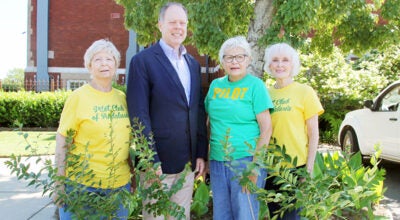Abusers could face murder charges
Published 11:20 pm Friday, February 12, 2016
Child abuse laws could be strengthened if the Alabama legislature passes Ava’s Law.
Under Ava’s Law, a person could be charged with murder if they commit aggravated child abuse that results in a child’s death.
The bill is sponsored by Sen. Tom Whatley, R-Auburn, and passed in the state Senate this week.
“What this law does, this clears up the gap, and it makes sure that if you abuse a child, if you commit aggravated child abuse and because of that the child dies, that you can be charged with felony murder,” Whatley told the Opelika-Auburn News Thursday.
Currently, Alabama law holds that aggravated child abuse that leads to the unintentional death of a child is limited to prosecution as manslaughter, and the maximum punishment is 20 years in prison.
The proposed law is named after 4-year-old Ava Zapata, who was from Lee County and died in May 2012 after her mother’s boyfriend abused and killed her.
The boyfriend was found guilty in 2014 of causing intentional and fatal blunt force trauma to the child.
Covington County had 275 reports of child abuse in 2014, which includes sexual, physical and neglect.
Those reports affect 130 children. Of those reported, 81 were significant enough to have children taken out of the home.
Covington County DHR Director Lesa Syler said that a lot of child abuse has to do with drug activity.
“Drug abuse leads to child abuse and neglect,” she said.
Syler said that parents who beat their children or use excessive means of punishment are being prosecuted.
Syler gave some red flags for child abuse, which she said could save a child’s life:
• If a child discloses or makes statements that cause alarm;
• a child whose everyday, basic needs are not met. They don’t have food, or their clothing is unsuitable for the weather or they have marks consistent with abuse.
Syler said sometimes children don’t know that abuse is unacceptable.
Last year, the Child Advocacy Center opened to make fighting child abuse cases more comfortable for the abused and the non-offending parent, and to enable agencies to work together more closely in helping prosecute the case and help the child heal.




